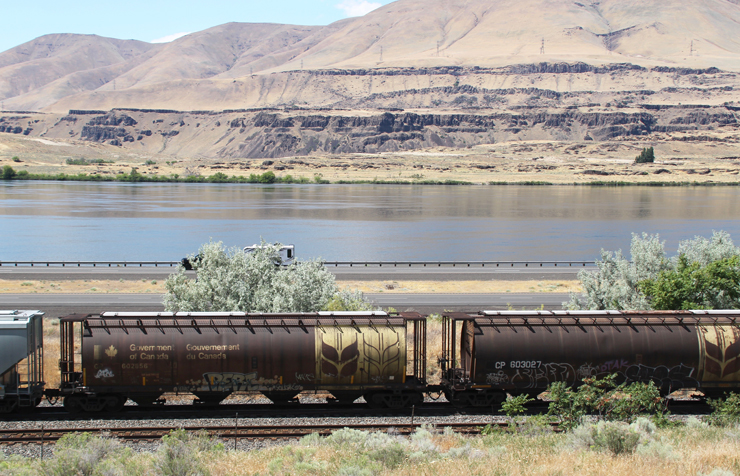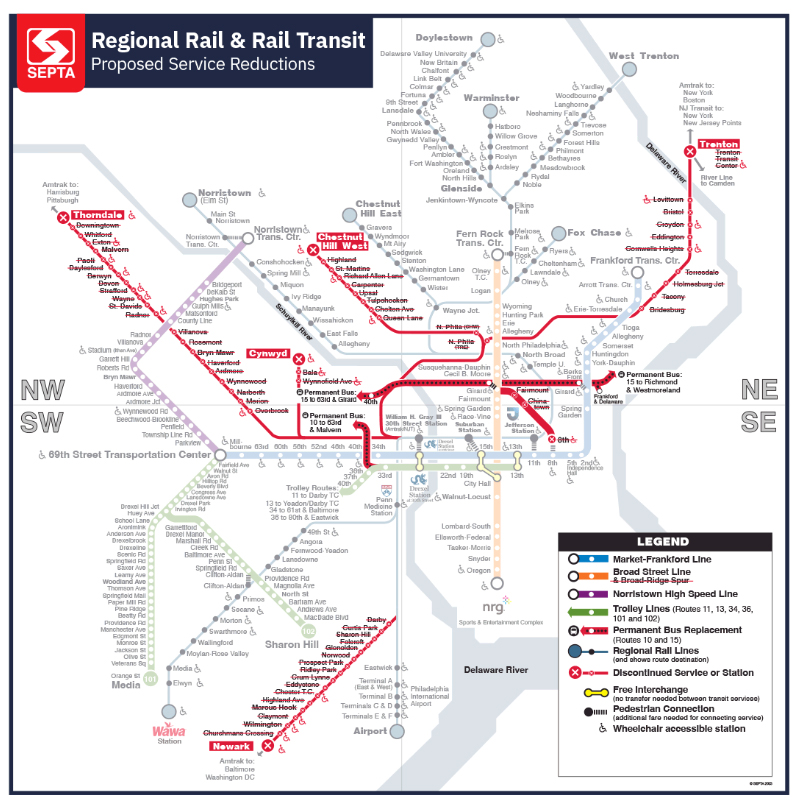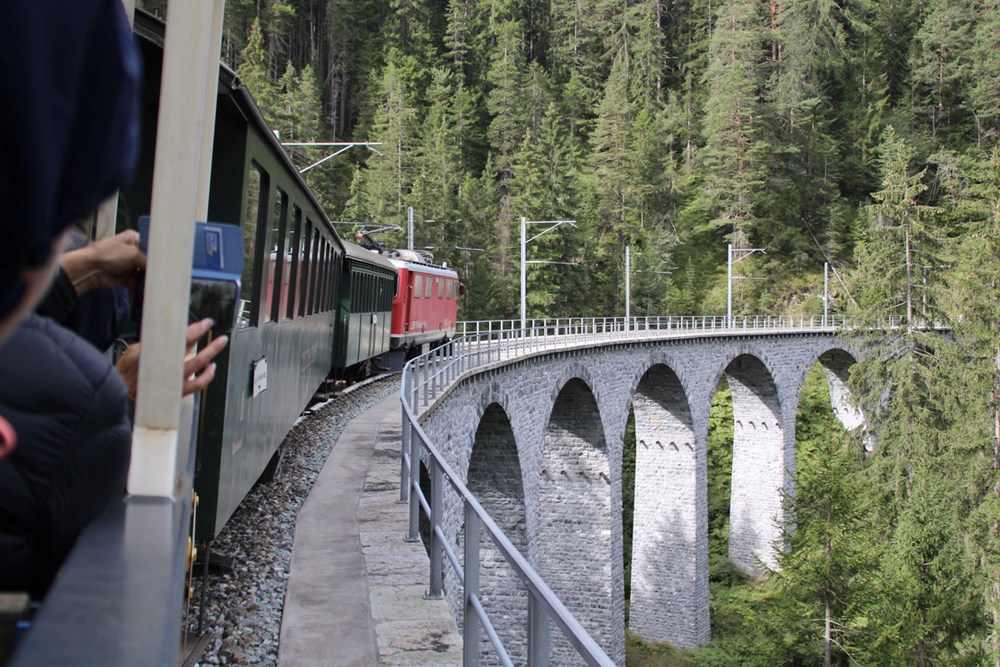CALGARY — Nearly three weeks after a strike against Canadian National Railway halted the movement of most freight on Canada’s largest railroad, Alberta farmers are asking the government to pass legislation designating the shipment of grain as an “essential service.”
Wheat growers say last month’s week-long strike damaged their reputation on the international market, according to a recent report by CBC News. More than 3,000 conductors and trainmen represented by the Teamsters Canadian Rail Conference walked off the job after working without a contract for several months. At the center of the labor dispute were concerns about safety and other operational practices.
Shortly after the strike, Alberta Wheat and Barley commissions announced they would support legislation preventing railroaders from walking off the job if it would impact the movement of grain. Canada’s longshoremen are already prevented from going on strike if it would impact the loading of grain-hauling vessels, and the commissioners say the same rule should apply to the rail system.
“The threat of strikes affecting grain movement is a recurring theme every few years and we need a long-term solution to ensure Canada can meet its export commitments,” says Alberta Barley Chair David Bishop.
A spokesman for the Teamsters declined to comment when reached by Trains News Wire.
On Nov. 26, the Teamsters and the railroad announced that they had reached an agreement on a new contract. Officials say the contract should be ratified sometime in January.















Mr. Thompson, I proudly held an IBEW apprentice card while working for an electrical contractor over college summers. In my opinion, the absolute best of any of the trade unions, with their excellent and widely respected apprentice program. Happy holidays.
Is it really farmers complaining? The article quotes a poobah from a Grain Marketing Board. He got embarrassed when he missed a shipping deadline. Ahh poor thing. If his contract didn’t have a transportation issue clause, shame on him.
several company’s run by hunter harrison, required managment and other office crafts to learn the skill of the running trades. including CN, they could have tried to pick up, move and deliver the grain, CN wanted farmers and other shippers to complain to the media, example, Quebec propane users, about 2 or 3 days of useing managment personel, they probally realized how little they know about our jobs, we do every day, under all circumstances. issues of safety and fatigue were well known for years, railroads have ignored them, the unions did what they had to do to start solving real issues
Mister Thompson:
(former) IBEW Local 6 District 1 Marine Unit 2 here …
Mr. Dicenso, with all do respect “ having run “ two companies that were Union does not help your argument in my opinion. And while I’m glad you had a good relationship with the Unions, that’s not always the case in many situations. The utility were I have worked for the past 33 years has mostly been fair with us. But for a period of time several years ago, under bad management, we were constantly under attack. Those managers finally did their selves in, but without the Union, it would have been much worse for us workers. And without the right to strike, for any reason, we would have been at their mercy. As for as the air traffic controllers Union being busted. The law making it illegal for them to strike is exactly what we are talking about. Without that right to withhold their labor they had nothing to bargain with. So why even have a Union. Were is the law saying a person can’t be fired or laid off for any reason. It would be just as wrong to have such a law as one that says a Union worker can’t strike. Proud IBEW Union member.
Christopher Parker,
No Federal employee has the right to strike, even those that are unionized, it’s against Federal law, which is the only laws that apply to Federal workers. State laws do not apply whether you work in a particular State or not, you are only subject to Federal Labor laws, and those are much less generous than a lot of state labor laws. One of them is the right to strike, you can’t as a Federal employee as you’re considered essential to running the nation(for the most part), however, if there’s a Federal shutdown, as we had last year, then most do not work and do not get paid, the rest, the essential for security and such work for free until there’s a budget resolution. I’m pretty sure the Canadian Teamsters didn’t for one minute think about those grain farmers and their reputation on the world market, but it makes complete sense if Longshoreman can’t strike because it would hurt grain exports, then railroaders shouldn’t be able to for the same reason.
That seems unlikely to happen given the Liberals minority government.
This will be seen as union busting. There is a reason CN rank & file picked that time to go on strike and now we know. It is called “maximum leverage”.
How many of these grain farms are owned by corporations?
I guess they just want the unions to lie down and take what ever the big guys offer and like it !
Good LUCK !
I can see both sides of the argument here.
On one hand, if CN workers have a grievance (I understand they have been working without a contract for some time, and there are labour and safety issues) the strike is their weapon. If they are denied this weapon they have no leverage and CN management can do as they like to them with impunity.
On the other hand the farmers need to get their goods to market. Grain is perishable but not over the short term, other goods are highly perishable and either get shipped to market promptly or there is no point in bothering. They need rail services, they don’t need craziness.
Both sides have my sympathy. The workers, because this is their livelihood and they deserve honest pay for honest work. The farmers, because they are the poor schnooks caught in the crossfire.
I believe (labour law is not my specialization) that Canada has back-to-work legislation. If so, having made their point the CN workers can continue to bargain and hopefully CN itself will reciprocate in good faith.
The above comments are genetic in nature and do not form the basis for an attorney/client relationship. They do not constitute legal advice. I am not your attorney. I heard upon his dry dung-heap that man cry out who cannot sleep: If God is God he is not good, if God is good he is not God. Take the eve or take the odd. I would not sleep here if I could but for the chanting of the leaves and the chirping of the brook.
Chris Thompson:
There was just an election in Canada in late October. Justin Trudeau’s Liberal Party was re-elected, but they don’t have a majority of seats. This is called a “minority government” and sometimes happens in parliamentary systems.
But the Liberals are dependent on other parties (there are three, two center-left one center-right) to pass things like a budget. Therefore they’re not going to restrict labor rights. They probably wouldn’t anyway, but they’re certainly not going to do it now.
https://en.wikipedia.org/wiki/2019_Canadian_federal_election
I don’t know if there is or isn’t an absolute right to strike.
But I would say that neither air travel nor the supply of steel are as important as freight rail.
Ronald Reagan busted up the aircraft controllers union, but we could certainly have weathered many more days (or even weeks). Absolutely it would have hurt the economy, but that is the whole idea. Travel is not “essential” in the way that food is, for example, or medical services. We managed 9/11 some years later when it was decided that flight was not essential, compared to national security (I was stranded for four days in Little Rock, Arkansas then – a city I was not planning on going to. I managed.)
Mr. Thompson, I challenge your statement that the unions deserve an “absolute” right to strike. Hopefully, not so. I am not anti-union, having run two unionized companies, one by the TWUA, the other by the Teamsters, and always had excellent relations in both directions. However, if there is an issue of national importance whereby severe damage can be caused to the economy or the national defense, that right must be overridden. Remember the Aircraft Controllers’ illegal strike? They knew they disobeyed the law, and they paid the price for it. Remember Harry Truman (a staunch union supporter, I might remind you) and his nationalization of the steel industry in the face of a threatened strike? Two good examples of why it must not be “absolute”.
Thank you Mr Thompson. Teamster here.
Mr Friedman, “Liberals minority government” ? How the heck does the minority elect the government in charge? And besides aren’t conservatives the ones for less government regulation? Maybe they’re only against regulations when they are pro labor. All Unions deserve the absolute right to strike. Proud IBEW union member.